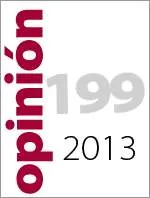Personalities vs. Institutions: Lessons of Qatar’s Transition

Eckart Woertz
Senior Research Fellow Associate, CIDOB
CIDOB 28 june 2013 / Opinión CIDOB, n.º 199 / E-ISSN 2014-0843
If one thing is striking in the commentary on the Qatari leadership transition, it is the focus on personalities. Institutions and constituencies hardly seem to matter. In contrast, health issues of the outgoing Emir Hamad bin Khalifa al-Thani, the French speaking governess of his successor Tamim bin Hamad al-Thani, and the supposedly “wily” character of the erstwhile Prime Minster Hamad bin Jassim bin Jaber al-Thani are debated at length.
This points to a major challenge that is prevalent in all the Gulf region, but nowhere as pronounced as in Qatar: In an increasingly complex world, personalities can run a family, but not a state. Only institutions can, but the latter are underdeveloped.
Gulf ministries are top heavy. People at the helm can be well educated and smart, but they preside over disempowered middle clerks who tend to do time, all the while gibberish speaking Western consultants swirl around, making a killing before leaving the country for good. To complicate things further informal advisors might have a more direct connection to the respective ruling courts. A hapless minister may well receive word about important changes in his portfolio via the newspapers.
This compromises the ability to communicate on an institutional level with peers in other governments, think tanks and international organizations. Qatar’s ability to make decisions on a whim and its restless activities on the international stage are well documented, yet it has often been unable to undertake the necessary follow-up work. “Politics is a strong and slow boring of hard boards” as Max Weber’s famous dictum goes and it cannot be done by a small ruling circle alone.
Gulf rulers are quick to point out that there is a tradition of consultation in diwans and shura councils that offers channels of informal participation. This is true and marks an important difference to the autocracies of the sunken Arab republics of yesterday. Yet such consultations neither reach the vast army of expatriate workers nor underprivileged nationals in an increasingly stratified and urbanized society, particularly in larger countries like Saudi Arabia or the UAE.
Reform measures since the 1990s are testimony to the unease of Gulf rulers with current arrangements. The partial opening of consultative Majlis al-Shura bodies to election procedures has been seen by some as a publicity stunt to assume a veneer of democratic legitimacy for the international gallery. Yet such measures could form a corner stone for more diverse, independent and ultimately more stable institutions.
Unfortunately there has been a backlash in the wake of the Arab spring. Twitteratis and poets have been jailed, signaling weakness and confusion. Transitions to constitutional monarchies now seem tenuous at best. As part of Qatar’s succession process, the outgoing Emir announced a postponement of elections to the country’s Majlis al-Shura, which had been planned for the first time in 2013. It will thus remain an appointed body; even Saudi Arabia has allowed elections for ceremonial municipal posts.
Maneuvering the pitfalls of domestic and international politics will not be easy for the new leadership of Qatar. Ahead of the soccer world championship in 2022 it will face scrutiny and will find itself in the crosshairs of international NGOs. Its track record on labor rights is not good and institutions to address worker grievances are less developed than in neighboring UAE. Its ambitious plan to establish a Global Dry Land Alliance to tackle food security issues in arid countries will require multilateral coordination on a large scale. Opportunistic reporting has damaged the once glorious brand of the satellite channel Al-Jazeerah in the Arab world. Burning Qatari flags at demonstrations in Cairo, Tripolis and Tunis may lead to a reconsideration of adventurous foreign policies. US pressure to cede control of the Syria file to Saudi Arabia hints to the limits of Qatar’s bureaucratic capacities.
The Qatari transition to a younger generation ahead of time avoids the uncertainty and family intrigue that has accompanied succession periods in other countries of the region like Saudi Arabia or the UAE. On the face it signals reform for the aspiring youth, but it has not been engineered by the institutional due process that the region will require in the long run. The crucial challenge for Qatar’s new leadership and other Gulf rulers will be institution building and maintaining control by loosening it.